Junkyard Gem: 1989 Saab 900 Turbo Convertible
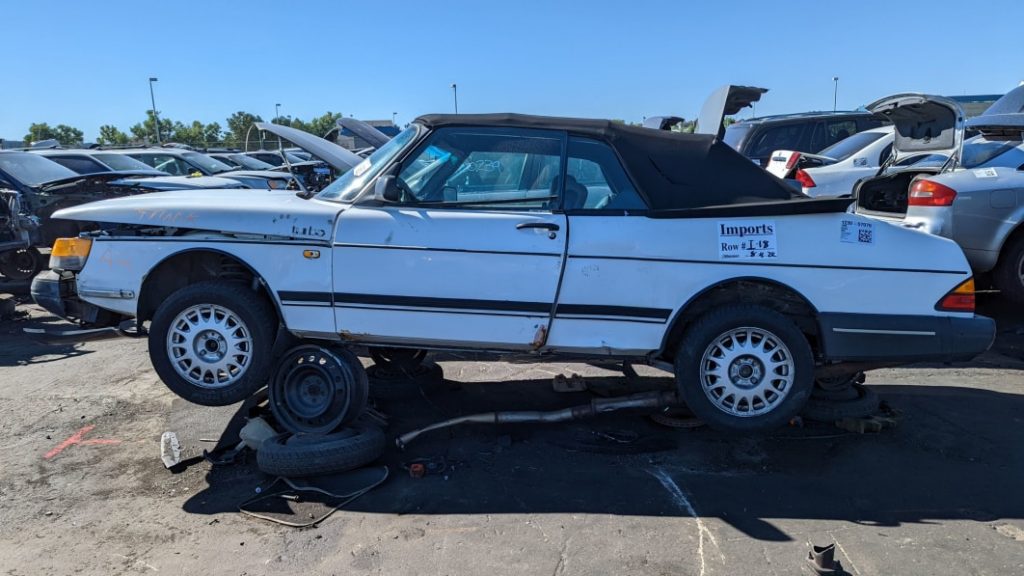
I live in Colorado, where Saabs were loved deeply by residents going way back to the 96 (and I’m sure a few 92s were sold here in the 1950s, though I haven’t found any in local car graveyards … yet). By far the easiest pre-GM Trollhättanites to find in Centennial State wrecking yards these days are the 1978-1993 900s, and I walk by a half-dozen for each one that I document as a Junkyard Gem. We admired a gloriously brown 900 Turbo two-door a few months back, but today’s 900 Turbo is an extremely rare cabriolet version, the first I’ve found in a boneyard in at least 15 years.
The convertible 900 was available only as a turbocharged version in the United States when it was introduced for the 1986 model year, and that continued through 1991. After that, a naturally-aspirated 900 convertible could be bought here.
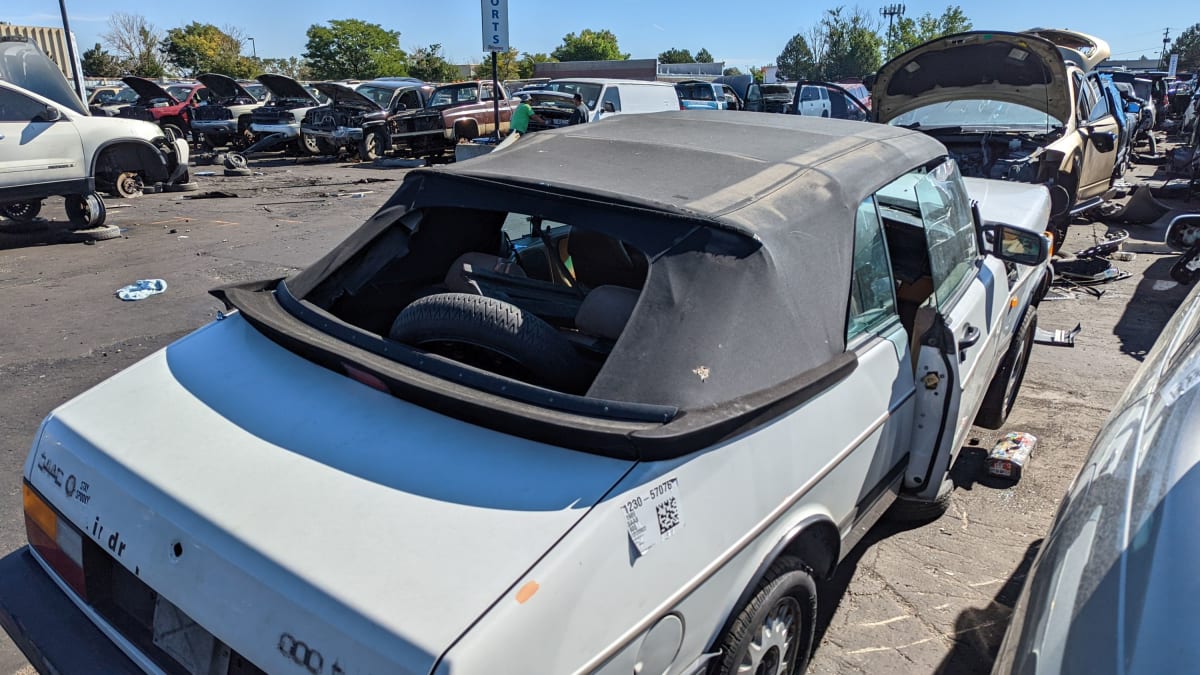
When in very nice condition, these cars can bring tidy sums. A super-low-mile ’87 900 Turbo convertible just sold for $145,000 recently, in fact.
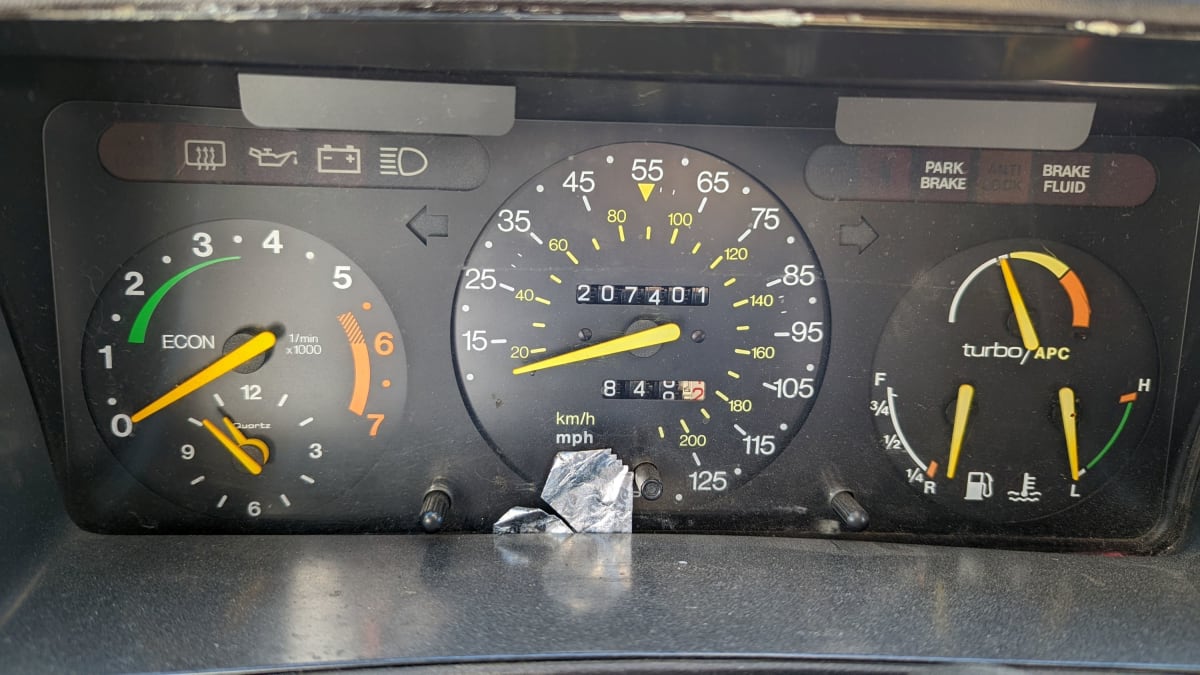
This car has more than 843 times as many miles on the odometer as that car, however, and it shows every one of them.
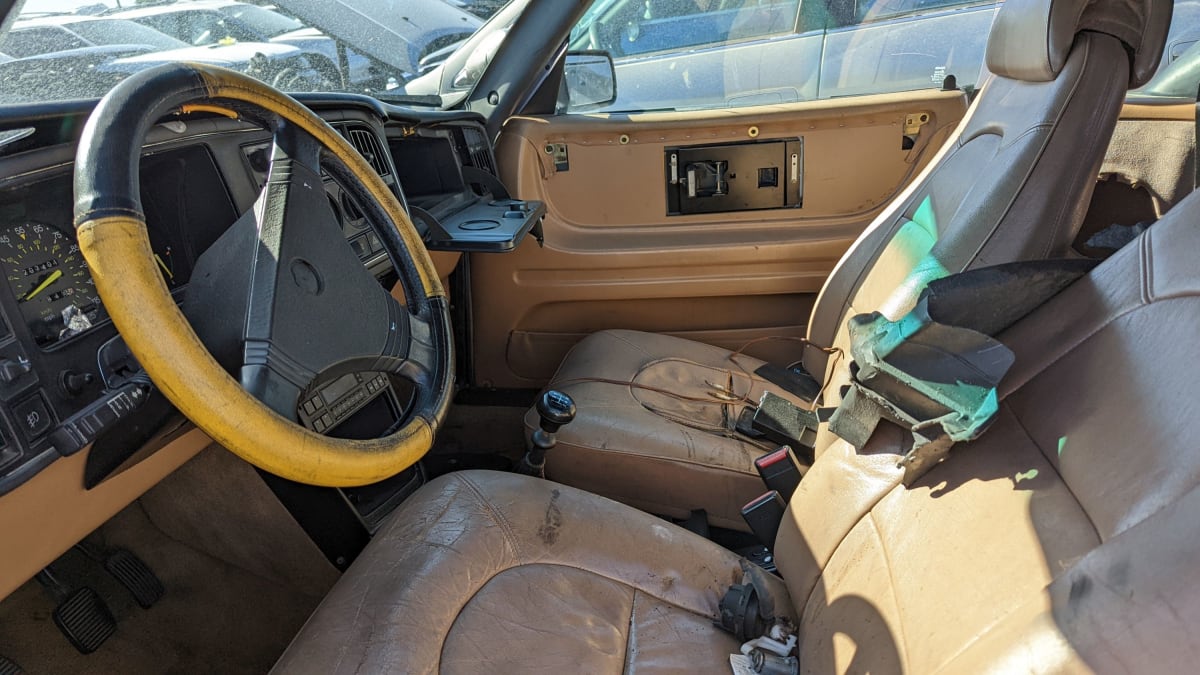
It’s not terribly rusty, considering, but the sheet metal shows many battle scars, and the interior is about what you’d expect with 33-year-old leather.
Last year’s film adaptation of Haruki Murakami’s short story, “Drive My Car,” put the Saab 900 Turbo back into mainstream cultural awareness. However, that car is a two-door sedan; the best-known Saab 900 Turbo Convertible in cinema history is the one driven by Iben Hjelje’s character in the film adaptation of the Nick Hornby novel, “High Fidelity.”
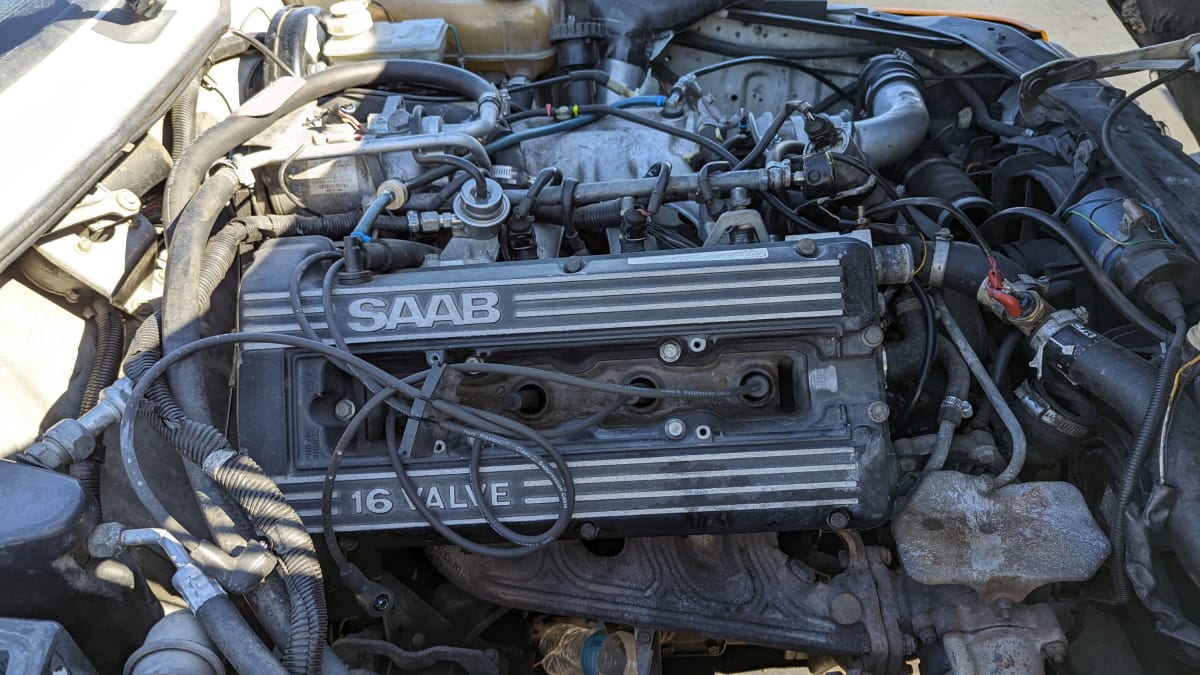
These cars were fairly quick for their time, with 160 horsepower from this DOHC 2.0-liter straight-four in 1989. Having seen more than my share of 900 Turbos going up against same-era BMW E30s and Acura Integras on road courses, I’d put my money on the Saab in a wheel-to-wheel race (that is, in a race short enough to keep the Swede’s nervous engine alive).
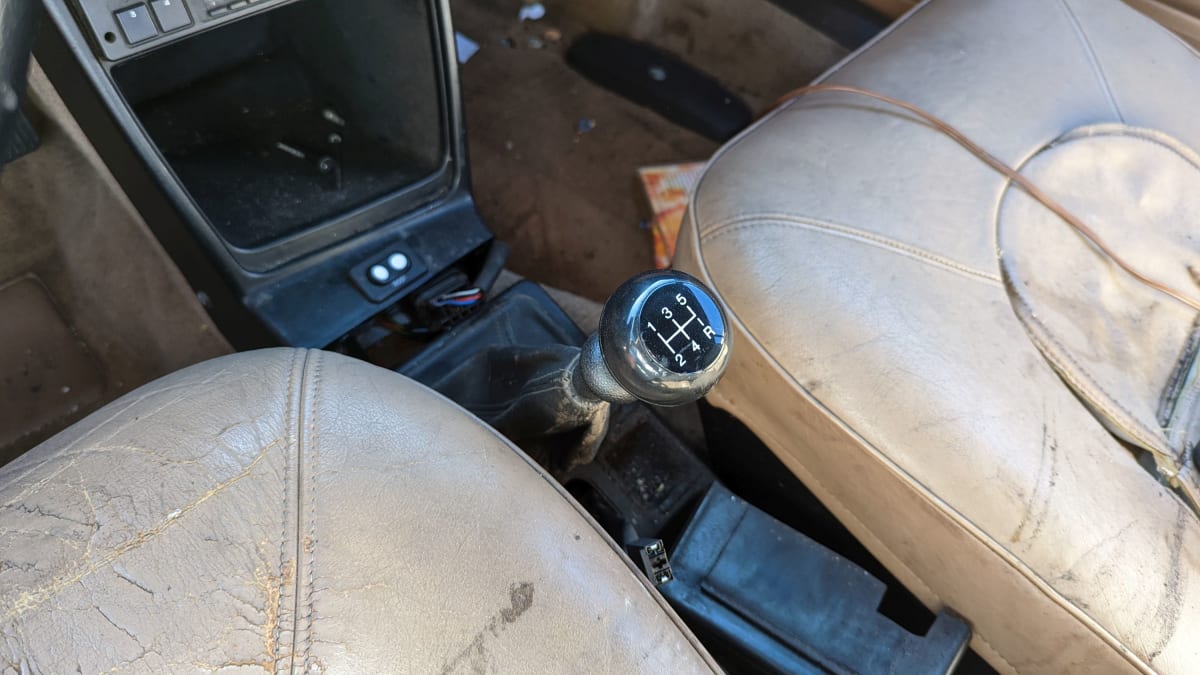
While a three-speed automatic was available on this car, the kind of Americans odd enough to buy Saabs in 1989 also tended to be the type that wanted manual transmissions. In fact, I can’t recall ever seeing a (non-Opel-based) 900 with a slushbox.
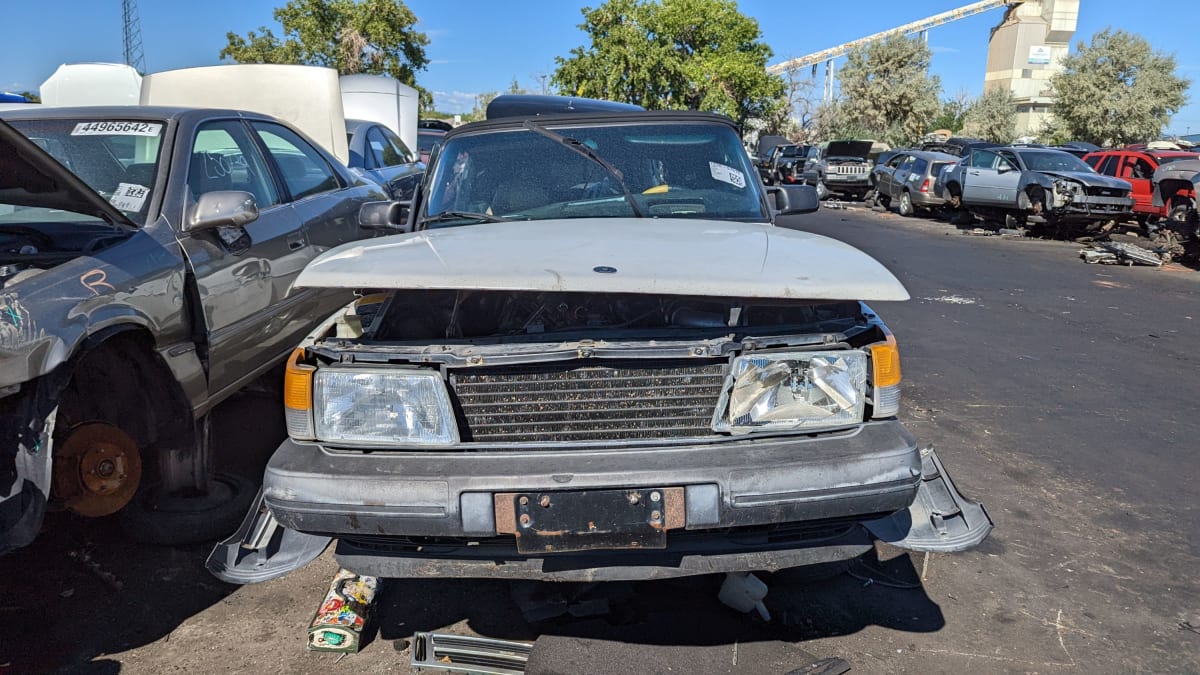
Yes, Opel! Starting in the 1994 model year, the 900 name went on a car based on the Opel Vectra platform. Later on, the Saab 9-5 and Saturn L-Series lived on the same chassis.
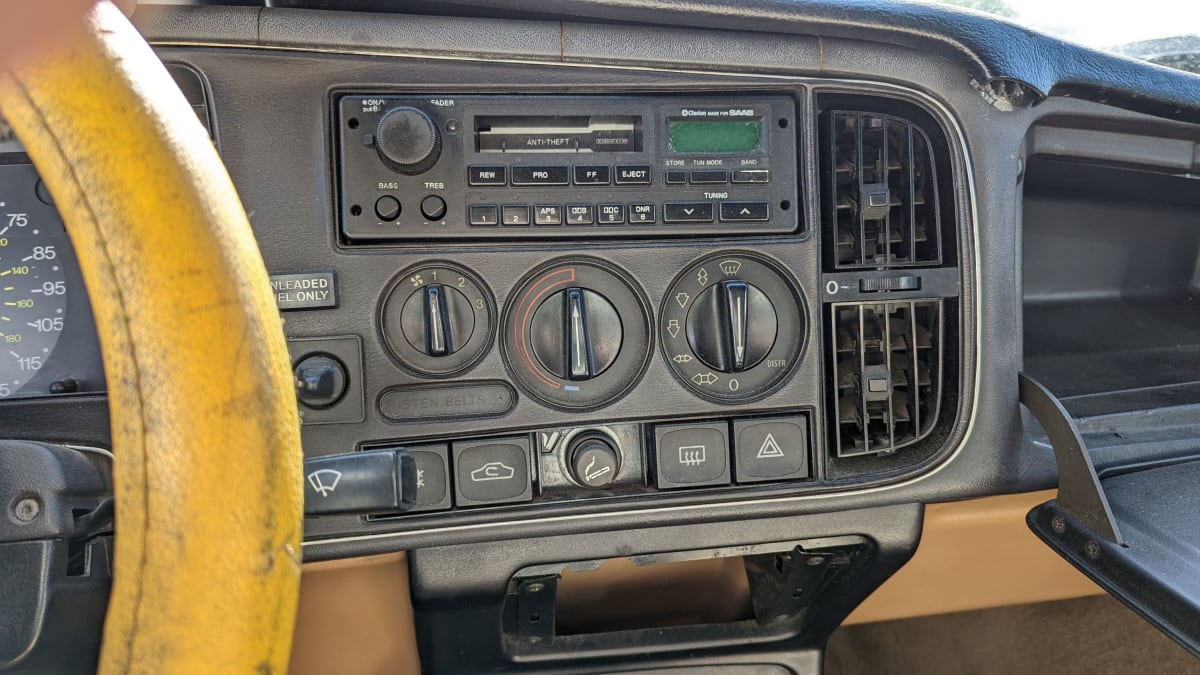
Given all the luxury features and genuine performance, this car was a pretty good value for the price in 1989. The MSRP was $32,095, which comes to about $78,495 in 2022 dollars. A BMW 325i convertible cost $33,850 ($82,785 now) and had eight additional horsepower from its straight-six engine, but it weighed close to 100 pounds more than the Saab. The Alfa Romeo Spider Graduate had a $16,700 price tag ($40,840 today) but had just 115 horses.
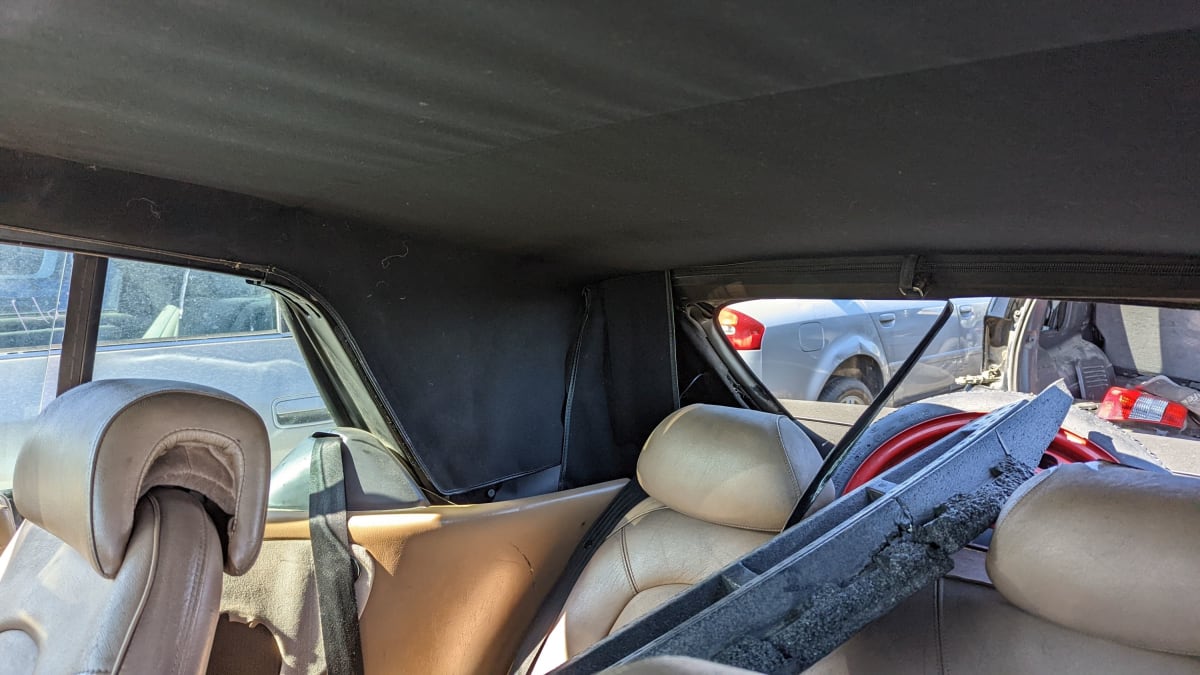
If you didn’t insist on a European convertible in 1989, you had more affordable options. A new Toyota Celica GT ragtop listed at $18,318 ($44,800 today), while a Chevrolet IROC-Z Camaro convertible cost $18,495 ($45,230) and had more power than the Saab. While you were looking at that Camaro, you might have considered the Cavalier Z24 convertible, which cost $16,615 ($40,635) but had just 125 horsepower. The 1989 Corvette convertible cost more than the Saab ($36,785, or $89,965 now), but not so much more that its mighty 245-horse V8 wouldn’t have seemed tempting. Or how about a new Chrysler LeBaron convertible, at $14,795 ($36,185) and boasting 174 turbocharged ponies?
Ditch that hooptified old Volvo and terrible Swedish weather for a Saab 900 Convertible … just by snapping your fingers!
Sensible yet crazy spirited.



